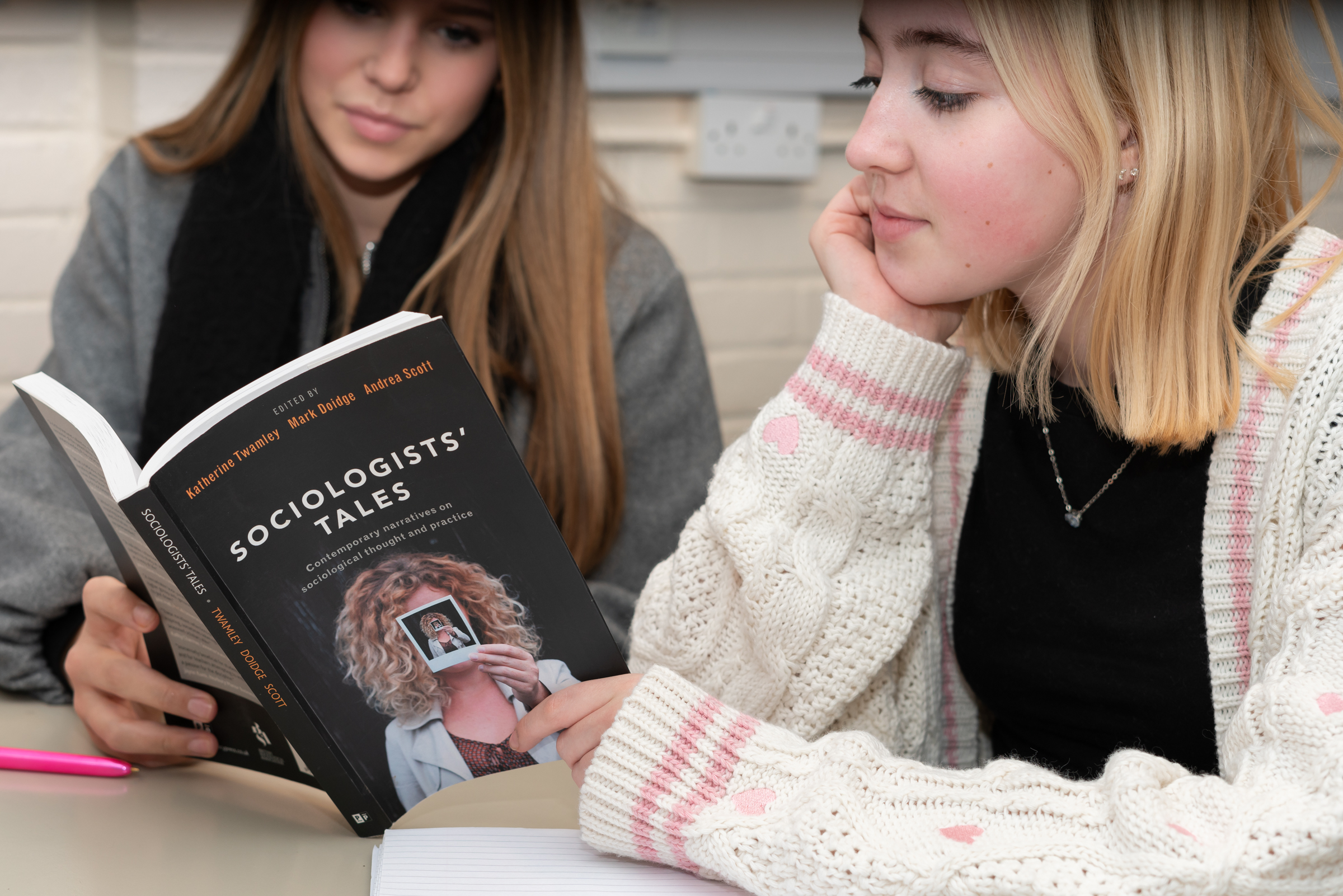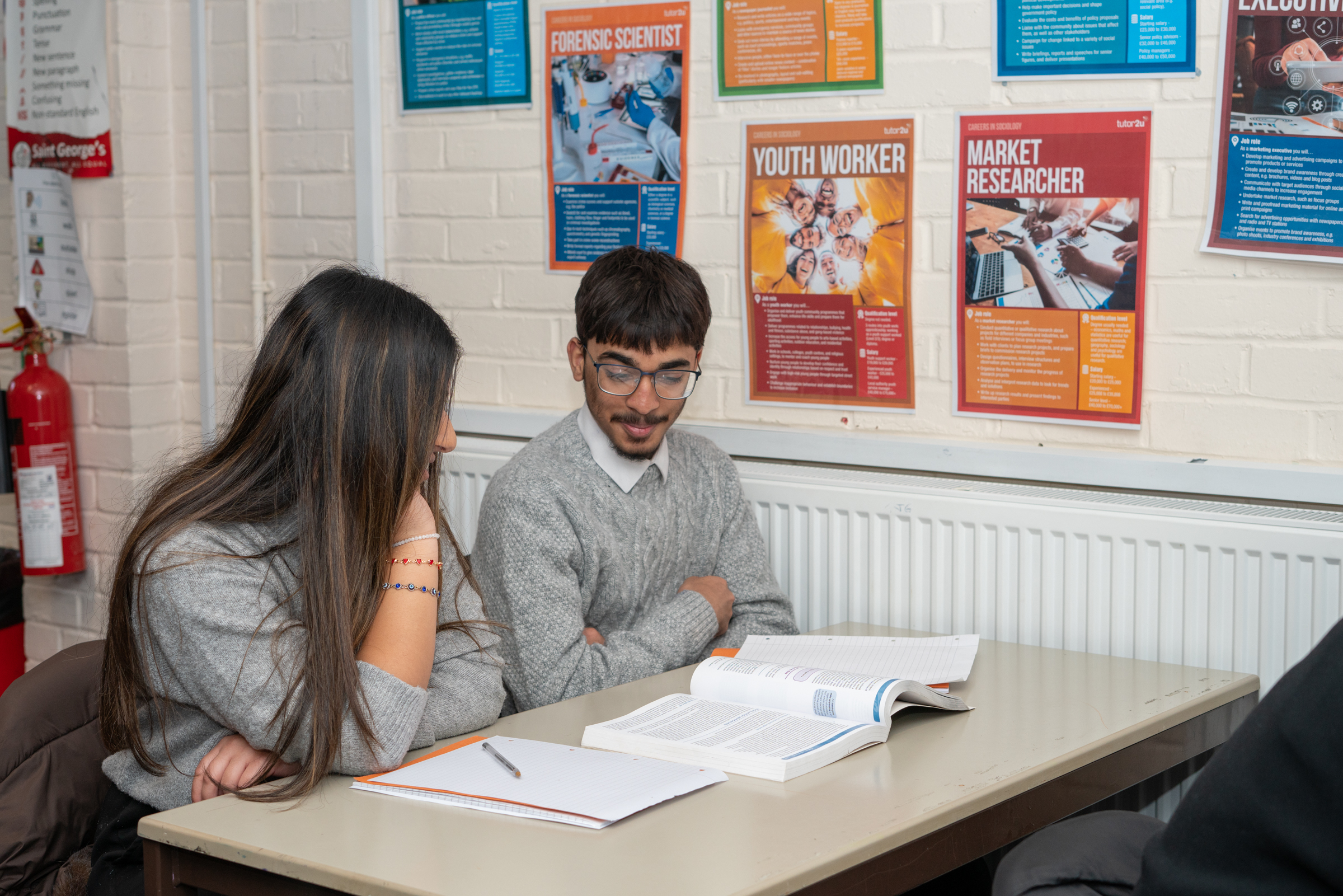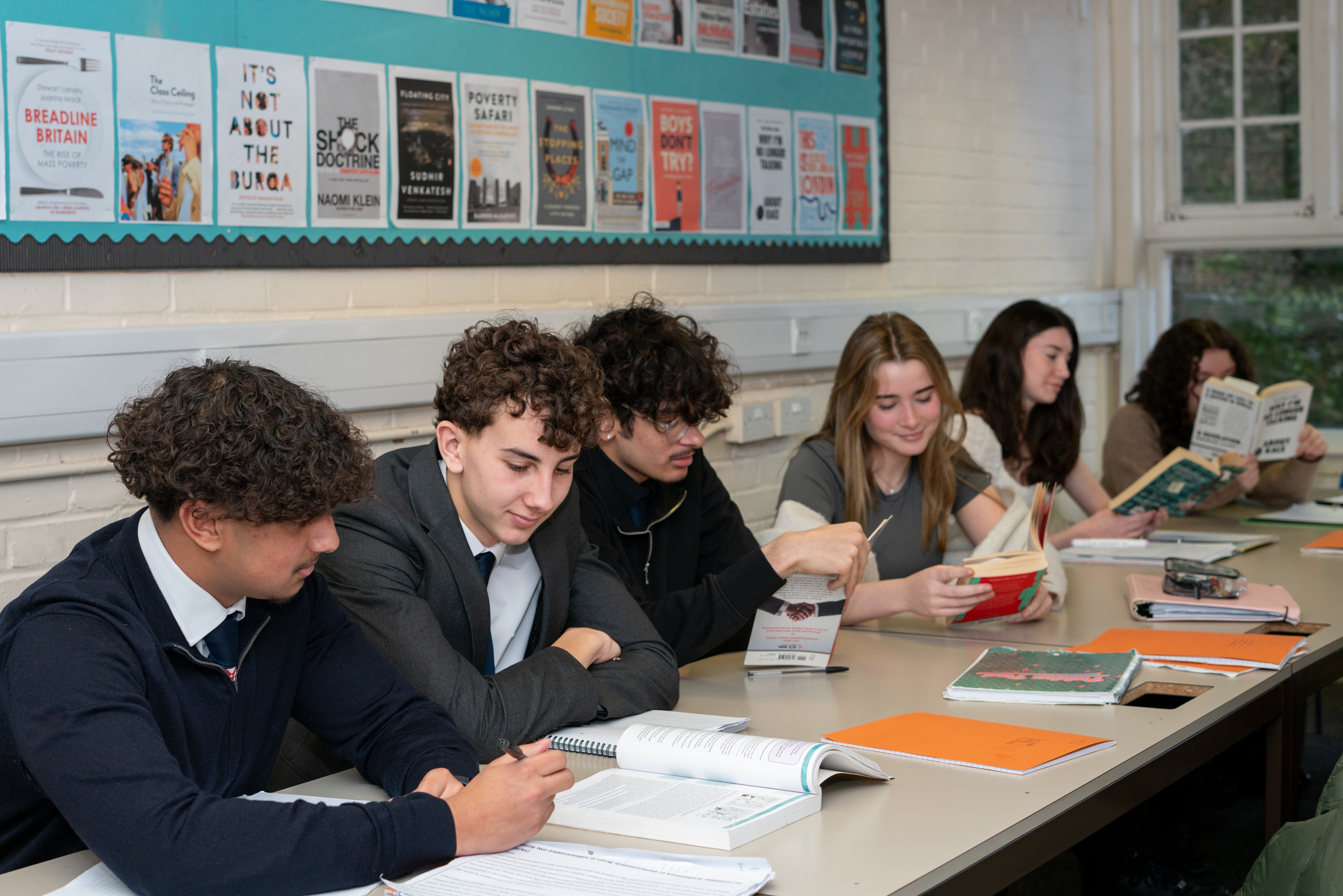Sociology
Curriculum Leader: Ms R Davies- daviesr@saintgeorgescofe.kent.sch.uk
Sociology is the study of society; it is interested in investigating how society works, the effect of different systems and structures of society on individuals and the different forms of inequality that exist within society. Sociology is about understanding the reasons behind social issues and proposing solutions to bring about positive social change.
Subject Requirements
- GCSE English - Grade 5 or above*
- *Or GCSE Sociology - Grade 5 or above and GCSE English - Grade 4 or above
Intent
Our aim is to provide students with a curriculum that is relevant and engaging and develops individuals to have the confidence to engage in critical thought about the world we live in. Sociology helps students to look at society differently, recognise social inequality and to challenge the status quo. The curriculum will help students to question the world around them and give them the drive and ambition to lead positive social change.
It is therefore our aim, to not only develop students’ love for the subject, but also their understanding of the world’s current issues and the role they may play in finding solutions.
Our curriculum is constantly reviewed to not only ensure that the needs of all students are met, but to ensure that students are educated about the most recent sociological issues.

Implementation

Sociology at Saint George’s provides students with the opportunity to develop a breadth of sociological knowledge that challenges them academically. They are encouraged to reflect on how our world is changing and challenged to consider the different forms of social inequality that exists within our society. The curriculum allows students to develop critical thinking, to consider a range of conflicting views and evidence and addresses real world problems and current affairs.
We ensure that SEND and disadvantaged children are given the necessary support in class to fully access the Curriculum and that equal opportunities are given to all.
Impact
Assessment practices at Saint George’s aims to ensure students have a breadth of sociological knowledge, using a range of contrasting sociological theories. Additionally, it builds students’ skills of critical analysis, evaluation skills and the ability to write extended answers, up to 45 minutes long. Students within the course will develop both literacy and numeracy skills.

Topics
Year 12 Sociology Topic Information
- What is Sociology?
- What are the key theories?
Paper 2 - Family and Households:
- How do families differ?
- Why have marriage and divorce rates changed?
- Is childhood socially constructed?
- Why have demographic trends changed?
- How have social policies affected the family?
- Are gender roles equal in the home?
Paper 1 & 3 - Research Methods:
- What is sociological research?
- What are the theoretical approaches to research?
- How do sociologists use questionnaires?
- How do sociologists use interviews?
- How do sociologists use observations?
- How do sociologists use experiments?
- How do sociologists use official statistics?
- How do sociologists use documents?
- What factors affect researchers’ choice of topic and method?
Paper 1- Education:
- What is the structure of the education system?
- What is the role of the education system?
- How can labelling affect students?
- What are in school subcultures?
- How do policies affect education?
- How do schools run like businesses?
- How does class affect student performance?
- How does gender affect student performance?
- How does ethnicity affect student performance?
- How has globalisation affected education?
- How can you use research methods to investigate educational issues?
Year 13 Sociology Topic Information
Paper 3 - Crime and Deviance
- How is crime socially constructed?
- What is the function of crime?
- How do consensus theories explain crime?
- How do conflict theories explain crime?
- How do postmodern theories explain crime?
- What are left and right realist explanations of crime?
- How does CAGE affect offending rates?
- How has globalisation affected crime?
- What is the function of punishment?
- What is the best way to prevent crime?
- How does CAGE affect your chance of being a victim of crime?
Paper 2 - Media
- How has media developed throughout history?
- What is the impact of new media?
- What is the relationship between media and its audience?
- What is the relationship between media and crime?
- What are the trends in media ownership and control?
- How is the news socially constructed?
- How are difference social groups represented in the media?
- How has globalisation affected the media?
Paper 1 & 3 - Theory and Methods
- Should sociology be a science?
- Is sociology value laden?
- How can sociology influence social policy?
- How do consensus theories explain society?
- How do conflict theories explain society?
- How do social action theories explain society?
- How do postmodern theories explain society?
Assessments
100% formal examinations.
|
Paper 1: Education with Theory and Methods (33%) |
Paper 2: Topics in Sociology (33%) |
Paper 3: Crime and Deviance with Theory and Methods (33%) |
|---|---|---|
|
Written Examination: 2 Hours. 80 Marks. |
Written Examination: 2 Hours. 80 Marks. |
Written Examination: 2 Hours. 80 Marks. |
|
Compulsory content: Education, Methods in Context, Theory & Methods |
Section A: Option - Families & Households Section B: Option - Media |
Compulsory content: Crime & Deviance, Theory & Methods |
Examining board link: AQA A Level Sociology
Sociology Future Paths
Social sciences degrees such as sociology, psychology, social policy, politics, and history. It can facilitate other subjects' entry into a wide range of other degrees as many of the skills developed are transferable to other subject areas.
Careers that have explicit links to sociology are within the criminal justice system, the education system, local authorities, social services, journalism, business and the media. There are many transferable skills in the business world across many different sectors.
Extra Resources
- YouTube: Tutor2u Sociology Revision
- YouTube: Teacher Sociology (helps to achieve top-band answers)
Revision Materials
- Sociology Past Exam Papers
- Instagram: The Sociology Guy (daily revision information sheets)
- Instagram: Tutor2usoc (daily revision questions)
- Revise Sociology
